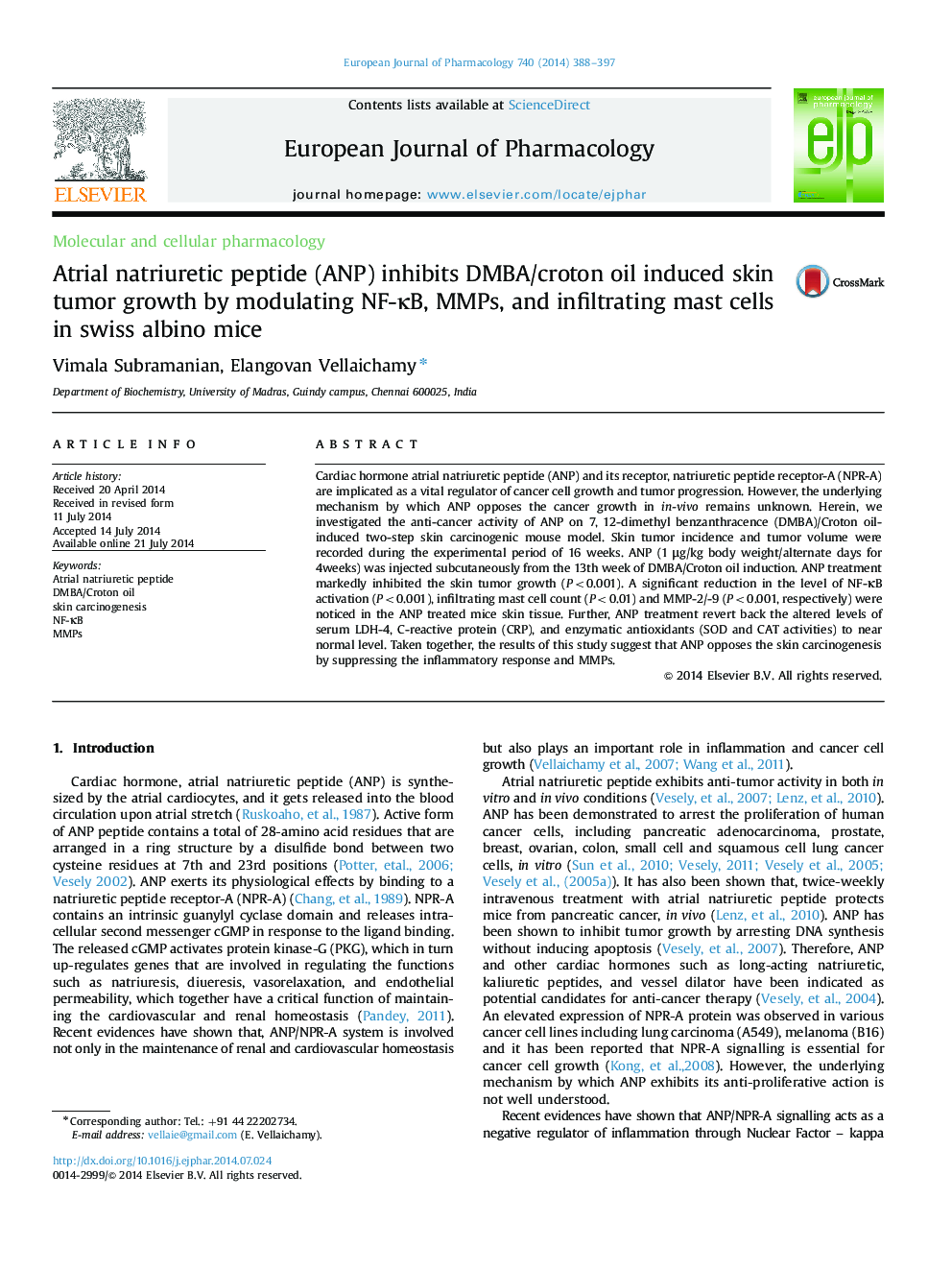| Article ID | Journal | Published Year | Pages | File Type |
|---|---|---|---|---|
| 2531612 | European Journal of Pharmacology | 2014 | 10 Pages |
Cardiac hormone atrial natriuretic peptide (ANP) and its receptor, natriuretic peptide receptor-A (NPR-A) are implicated as a vital regulator of cancer cell growth and tumor progression. However, the underlying mechanism by which ANP opposes the cancer growth in in-vivo remains unknown. Herein, we investigated the anti-cancer activity of ANP on 7, 12-dimethyl benzanthracence (DMBA)/Croton oil- induced two-step skin carcinogenic mouse model. Skin tumor incidence and tumor volume were recorded during the experimental period of 16 weeks. ANP (1 μg/kg body weight/alternate days for 4weeks) was injected subcutaneously from the 13th week of DMBA/Croton oil induction. ANP treatment markedly inhibited the skin tumor growth (P<0.001). A significant reduction in the level of NF-κB activation (P<0.001), infiltrating mast cell count (P<0.01) and MMP-2/-9 (P<0.001, respectively) were noticed in the ANP treated mice skin tissue. Further, ANP treatment revert back the altered levels of serum LDH-4, C-reactive protein (CRP), and enzymatic antioxidants (SOD and CAT activities) to near normal level. Taken together, the results of this study suggest that ANP opposes the skin carcinogenesis by suppressing the inflammatory response and MMPs.
